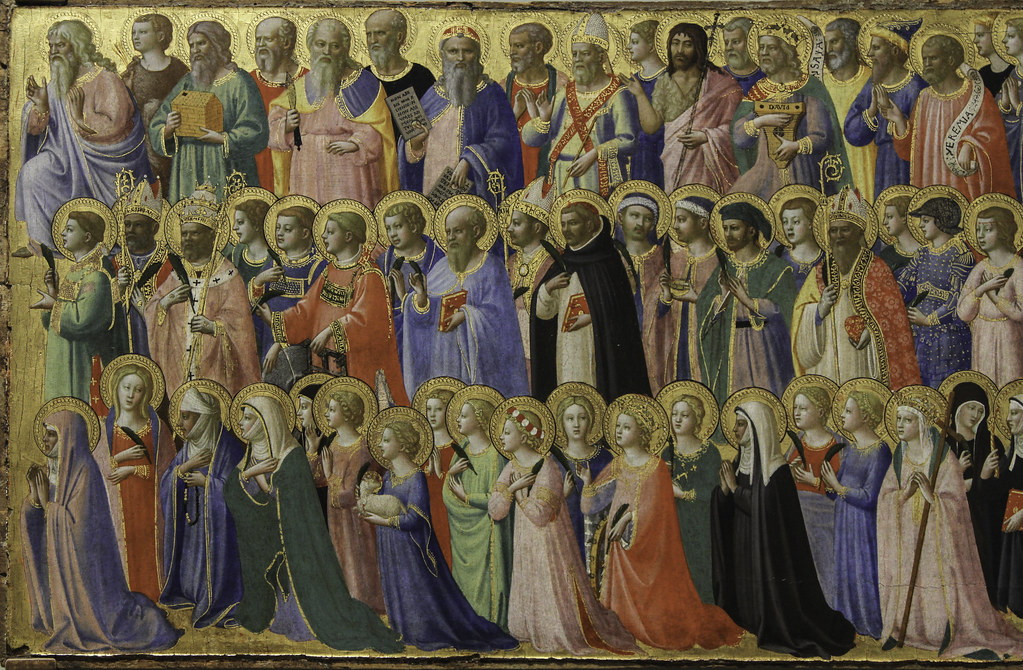The saints in heaven all speak the same language, and they favor one tense for their verbs: the present tense. Safe from all threat of sin and defection, they sing in the eternal now of the divine glory: “To him who sits upon the throne and to the Lamb be blessing and honor and glory and might for ever and ever” (Rev 5:13). The saints live forever in the ‘today’ of heaven, sharing in the eternal life of He Who Is (Exod 3:14).
Here on earth, we too must hear God’s voice “today” and in the present moment (see Ps 95:7). This is the only real time available to us. As Saint Augustine observed, the future “is not as yet,” and the past “now is not” (Confessions, XI, 14). The present is the most real of times, and therefore the most heavenly.
However, only God can fully claim the eternal present for himself because he alone simply is. For our part, we are either wayfarers in the world, longing for future happiness, or former wayfarers marked by our past decisions. Consequently, the grammar of human speech is always more complex. The blessed pray in the present tense, but because of their time on earth even they preface their sentences with past counterfactual conditions. A brief word on grammar will help us understand this significant point.
Counterfactuals give a false hypothetical scenario and then say what would have happened if that scenario had been real. If the train had been delayed, then he would have been late. If she had studied German, then she would have known what they were saying. If sentence diagrams brought great joy to our childhood, then we would not need these examples.
The saints, precisely because they are not the eternal God, always use their own counterfactual condition, as the psalms reveal:
If it had not been the Lord who was on our side,
let Israel now say—
if it had not been the Lord who was on our side (Ps 124:1-2).
By imagining a world without divine aid, the Psalmist vividly recalls God’s real and constant action for his people. If God had not been on Israel’s side, then her enemies would have “swallowed” her “alive”; the “raging waters” would have drowned her (Ps 124:3-5). But, thanks be to God, this premise is pure fiction: Israel’s “help is in the name of the Lord, who made heaven and earth” (Ps 124:8).
The Church uses this same construction whenever she marvels at the gift of grace. All that we know and do by nature depends radically on God, in whom “we live and move and have our being” (Acts 17:28). But grace elevates us still further, to live and act in an order entirely above our nature. Without grace, we could never love God with the love of charity, and we could never merit everlasting life. This supernatural life is our gratuitous participation in the life of the triune God (see 2 Pet 1:4). Jesus preached about this divine generosity when he offered his own counterfactual to the Samaritan woman: “If you knew the gift of God, and who it is that is saying to you, ‘Give me a drink,’ you would have asked him, and he would have given you living water” (John 4:10).
Jesus himself is the living water and the gift of God (John 7:37-39). The saints know perfectly this divine gift. They acknowledge that their present glory rests on the reality of God’s saving grace during their earthly lives. We depend upon and can sing about this same divine help, just as the saints did and do. Whenever we strive in our “today” to go up and join them in the new Jerusalem, may we, like them, remember that God has been “on our side.”
✠
Photo by Fr. Lawrence Lew, O.P. (used with permission)







